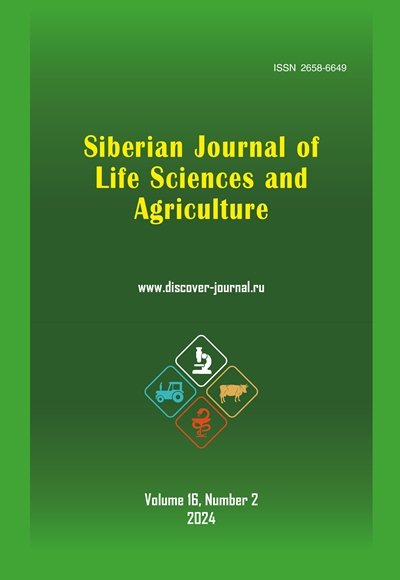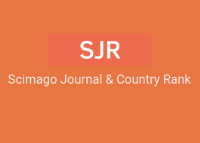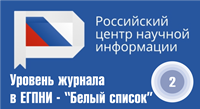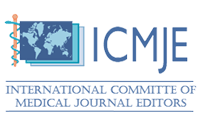ASSESSMENT OF LAND RESOURCES EVALUATION BASED ON LAND CAPACITY AND FERTILITY PERSPECTIVES FOR AGRICULTURAL COMMODITIES IN LESTI SUB-WATERSHED
Аннотация
Land use that disregards the potential of the land, like is the case in watershed areas, not only increases the danger of disaster, but it can also lead to environmental damage. This study intends to assess the land capacity and soil fertility in the Lesti Sub-watershed in Malang Regency, East Java Province. GIS analysis, descriptive analysis, and laboratory tests were the data analytic techniques employed in this study. Four different land use types Moor, Coffee Plantation, Snakefruit Plantation, and Shrubs can be found in the area surrounding the watershed, according to field observations. The research findings imply that sloping and hilly plains have limiting factors for variable land capacities and limiting factors such as land slope and permeability. The study also provides an overview, namely that overall soil fertility is low and in all land use units, including the limiting factors on base saturation, C-organic, phosphate, and potassium. Overall, the research gives information or instructions for accurately analyzing land resources to measure agricultural commodity output based on the physiography of watershed areas experiencing land degradation.
Скачивания
Литература
Salehpour Jam A., Mosaffaie J. Introducing the concept of a ladder of watershed management: A stimulus to promote watershed management approaches. Environ. Sci. Policy, 2023, vol. 147, no. January, pp. 315-325. https://doi.org/10.1016/j.envsci.2023.07.001
Maroeto, Priyadarshini R., Santoso W. Integration GIS and Multicriteria analysis critical land farming in welang watershed. Bulg. J. Agric. Sci., 2021, vol. 27, no. 2, pp. 242-252.
Wang G. et al. Integrated watershed management: evolution, development and emerging trends. J. For. Res., 2016, vol. 27, no. 5, pp. 967-994. https://doi.org/10.1007/s11676-016-0293-3
Tang T., Stevenson R. J., Grace J. B. The importance of natural versus human factors for ecological conditions of streams and rivers. Sci. Total Environ., 2020, vol. 704, p. 135268. https://doi.org/10.1016/j.scitotenv.2019.135268
Maroeto, Santoso W. GIS-Based Spatial Evaluation for Land Suitability. AIP Conf. Proc. 2023, 2798, p. 10. https://watermark.silverchair.com/020066_1_5.0154804.pdf?token=AQECAHi208BE49Ooan9kkhW_Ercy7Dm3ZL_9Cf3qfKAc485ysgAABXQwggVwBgkqhkiG9w0BBwagggVhMIIFXQIBADCCBVYGCSqGSIb3DQEHATAeBglghkgBZQMEAS4wEQQMhoYg3Jvo67S663CHAgEQgIIFJxzE_OCWP9b8DBULSBF7lEqav0KiyiX1F1W3.
Bukori A. S. Analisis Ketersediaan Sumber Daya Air Dan Upaya Konservasi Sub Das Lesti Kabupaten Malang. Institut Teknologi Sepuluh Nopember Surabaya, 2017.
Sitorus S. R. P. Land Capability Classification for Land Evaluation : a Review. J. Sumberd. Lahan, 2010, vol. 4, no. 2, pp. 69-78.
Kusumandari A., Nugroho P. Land Capability Analysis Based on Hydrology and Soil Characteristics for Watershed Rehabilitation. Procedia Environ. Sci., 2015, vol. 28, no. SustaiN 2014, pp. 142-147. https://doi.org/10.1016/j.proenv.2015.07.020
De Feudis M., Falsone G., Gherardi M., Speranza M., Vianello G., Vittori Antisari L. GIS-based soil maps as tools to evaluate land capability and suitability in a coastal reclaimed area (Ravenna, northern Italy). Int. Soil Water Conserv. Res., 2021, vol. 9, no. 2, pp. 167-179. https://doi.org/10.1016/j.iswcr.2020.11.007
McGrath J. M., Spargo J., Penn C. J. Soil Fertility and Plant Nutrition. Encycl. Agric. Food Syst., 2014, vol. 5, pp. 166-184. https://doi.org/10.1016/B978-0-444-52512-3.00249-7
FAO, Soils for nutrition: state of the art. Rome: Food and Agriculture Organization of the United Nations, 2022.
Pambudi A. S., Moersidik S. S., Karuniasa M. Analisis Sebaran Limpasan Permukaan pada Sub DAS Lesti Sebagai Pertimbangan Konservasi Hulu DAS Brantas. J. Tek. Pengair., 2021, vol. 12, no. 2, pp. 104-115. https://doi.org/10.21776/ub.pengairan.2021.012.02.03
Rokhmawati A. Analisa Tata Guna Lahan DAS Lesti Berbasis SIG (Sistem Informasi Geografis). J. Rekayasa Sipil, 2018, vol. 2, no. 1, pp. 82-89. http://riset.unisma.ac.id/index.php/ft/article/view/1691
Firdaus M. R. Analisa Sedimentasi Das Lesti dengan Perubahan Tataguna Lahan di Kabupaten Malang. J. Rekayasa Sipil, 2015, vol. 03, no. 1, pp. 19-28. https://media.neliti.com/media/publications/270082-analisa-sedimentasi-das-lesti-dengan-per-08d50b8f.pdf
Arsyad S. Konservasi Tanah Dan Air. Bogor: IPB Press, 2010.
Purwanto I. et al. Petunjuk teknis pelaksanaan penelitian kesuburan tanah. IAARD Press, 2014. https://repository.pertanian.go.id/server/api/core/bitstreams/ad299beb-1c84-4dea-b16b-2abcec2a7358/content
Budiarta I. G. Analisis Kemampuan Lahan Untuk Arahan Penggunaan Lahan Pada Lereng Timur Laut Gunung Agung Kabupaten Karangasem-Bali. Media Komun. Geogr., 2014, vol. 15, no. 1, pp. 19-32. https://doi.org/10.23887/mkg.v15i1.11420
Mujiyo M., Nugroho D., Sutarno S., Herawati A., Herdiansyah G., Rahayu R. Evaluasi Kemampuan Lahan sebagai Dasar Rekomendasi Penggunaan Lahan di Kecamatan Ngadirojo Kabupaten Wonogiri. Agrikultura, 2022, vol. 33, no. 1, p. 56. https://doi.org/10.24198/agrikultura.v33i1.37950
Dewi I. G. A. S. U., Trigunasih N. M., Kusmawati T. nPrediksi Erosi dan Perencanaan Konservasi Tanah dan Air pada Daerah Aliran Sungai Saba. J. Agroekoteknologi Trop., 2012, vol. 1, no. 1, pp. 12-23.
Kagabo D. M., Stroosnijder L., Visser S. M., Moore D. Soil erosion, soil fertility and crop yield on slow-forming terraces in the highlands of Buberuka, Rwanda. Soil Tillage Res., 2013, vol. 128, pp. 23-29. https://doi.org/10.1016/j.still.2012.11.002
Putra A., Widyaningsih R., Nurcholis M. Analisis Faktor Erodibilitas Tanah Penyebab Erosi di Area Tambang Batubara Site Melak. J. Miner. Energi, dan Lingkung., 2019, vol. 3, no. 1, p. 42. https://doi.org/10.31315/jmel.v3i1.2896
Nurhayati L., Nugraha S., Wijayanti P. Pengaruh Erosi Terhadap Produktivitas Lahandas Walikan Kabupaten Karanganyar Dan Wonogiri. GEADIDAKTIKA - J. Pendidik. Geogr., 2013, vol. 1, no. 1.
Tumangkeng T. G., Warouw V. R. C., Mawara J. M. Analysis of the Effect of Rainfall on Erosion on Soil Without Mulch and Mulched. Cocos, 2021, vol. 1, no. 1, p. 2.
Usman K., Deribew K. T., Alemu G., Hailu S. Spatial modeling of soil loss as a response to land use-land cover change in Didessa sub-basin, the agricultural watershed of Ethiopia. Heliyon, 2023, vol. 9, no. 3, p. e14590. https://doi.org/10.1016/j.heliyon.2023.e14590
Zuazo V. H. D., Pleguezuelo C. R. R. Soil-erosion and runoff prevention by plant covers. A review. Agron. Sustain. Dev., 2008, vol. 28, no. 1, pp. 65-86. https://doi.org/10.1051/agro:2007062
Просмотров аннотации: 445
Copyright (c) 2024 Maroeto, Rossyda Priyadarshini, Wahyu Santoso

Это произведение доступно по лицензии Creative Commons «Attribution-NonCommercial-NoDerivatives» («Атрибуция — Некоммерческое использование — Без производных произведений») 4.0 Всемирная.

























































